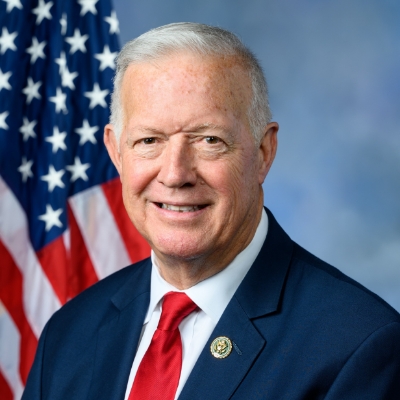- Home
- About
- Contact
- Services
- Art Competition
- Community Project Requests
- Congressional Commendations
- Flags
- Assistance with a Federal Agency
- Internships
- Military Academy Nominations
- Passports
- Presidential Greetings
- Tours and Tickets
- The Congressional Award
- Grants
- Water Resources Development Act 2026
- Additional Services and Resources
- Media
- Legislation
- Issues
- Resources
 U.S. REPRESENTATIVE
Randy Weber
Proudly Serving Texas' 14th District
U.S. REPRESENTATIVE
Randy Weber
Proudly Serving Texas' 14th District
Press Releases
Weber and Science Committee Republicans Want a Clear Path for Advanced Nuclear Technology
March 15, 2022,
March 15, 2022
WASHINGTON D.C. – Tuesday, March 15, 2022, House Science, Space, and Technology Committee Ranking Member Frank Lucas (R-OK) joined Energy Subcommittee Ranking Member Randy Weber (R-TX) on a letter to Nuclear Regulatory Commission (NRC) Chairman Christopher Hanson and Department of Energy (DOE) Secretary Jennifer Granholm regarding the nuclear licensing process. The Members emphasized the importance of developing advanced nuclear reactors and expressed concerns about the licensing process slowing forward progress. “The importance of having secure, stable, and reliable domestic energy supplies in America has never been more obvious,” Weber and the Science Committee Members wrote. “However, we are concerned that the current licensing process poses unique challenges for the development and deployment of advanced nuclear reactors, and if left unaddressed, has the potential to stifle United States innovation and slow the progress of essential next-generation clean energy technologies. In order for the United States to strengthen its energy independence, retain its leadership in energy innovation, and address global climate change, we must prioritize the commercialization of new, advanced nuclear energy technologies.” Building an advanced nuclear energy industry in the U.S. has long been an active and bipartisan Committee priority for years, and Members outlined significant investments in advanced nuclear technology made through three recent laws: the Nuclear Energy Innovation Capabilities Act, the Nuclear Energy Innovation and Modernization Act, and the Energy Act of 2020. Members pointed out that these investments will be wasted if the licensing process is too uncertain or inflexible to accommodate emerging technologies and urged the NRC and DOE to consider ways to modernize the licensing process. “The billions of dollars spent on nuclear research and development at DOE over the last decade will not produce any benefits without a clear licensing process in place for the reactors developed through these efforts,” they wrote. “What would it mean for our national security and the American taxpayer if these reactors are built, tested, and deemed operational, but ultimately cannot be licensed in a replicable, timely manner? Failure to adequately bridge this gap would result in a massive blow to the United States energy leadership and represent one of the largest wastes of taxpayer dollars in modern history.” |
